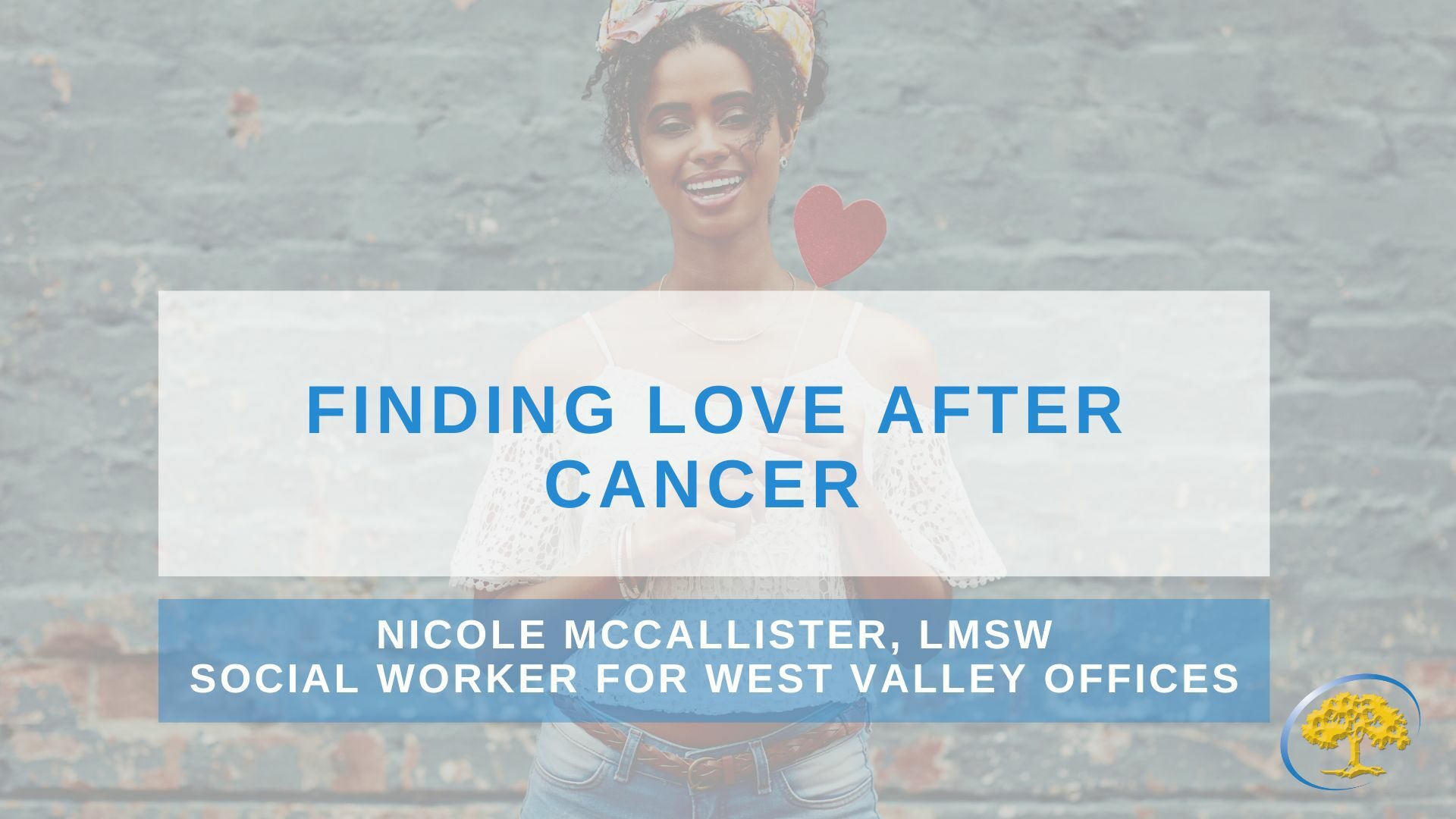
Posted 2 years ago
Finding love after cancer
Dating and intimacy are not always easy. It involves our self-esteem, body image, confidence levels, social interaction skills, and communication. Add in a cancer diagnosis, hair loss, mastectomy scars and those challenges may become obstacles for some.
A diagnosis and treatment of cancer can cause social, emotional, and physical changes. These can play a significant role in relationships we have, whether they are new ones or ones you maintained during this journey.
We want to give you some tools to be successful, confident and enjoy dating and intimacy again.
Connect with other cancer survivors who have dated or are open about their current relationships. Find out how they did it.
Be kind to yourself. Journal all the amazing things about yourself you have to offer others. Make a list of your best features. Bring your best friend and pep squad to boost your morale.
The way you did things before cancer might not be how you do them now. It is the new you. Do and be what makes you feel good.
Consider lingerie and clothing that accentuates your positives but also protects areas you may be shy about.
When we put ourselves out in the world, we become vulnerable. That is not a bad thing. When we are open to others, we can experience love and kindness. However, with vulnerability, we can also experience rejection and hurt. Be prepared for both.
Have fun! Even if it ends up being one date, enjoy a great dinner or new activity you tried. Every step you take, is a step in the right direction.
A topic that comes up often in our support groups involving dating, is … When do I tell them I have or had cancer?
It is your journey and the choice to share personal information is completely up to you. Everyone is unique and have different comfort levels. Consider waiting to share your cancer experience until trust is established, the possibility of a relationship is imminent, or if you are going to become physically intimate.
Practice with a friend on what you want to share and prepare for questions they may ask. Rehearse what you feel comfortable sharing and feel good about setting boundaries.
Our Integrative MD, Dr. Heidi Rula, has a two-part series on Sexual Health. These videos can be found on our YouTube page https://www.youtube.com/channel/UCn7-Prcg-JbYwQG94-25OnQ/videos These
videos can educate you on how to adapt and over the physical and emotional issues involved in intimacy with body changes as a result of cancer and cancer treatment.
Tips for Intimacy!
Intimacy is more than just intercourse. Try new ways of giving and receiving pleasure.
Be honest with your partner about what feels good, what you like and anything that becomes painful.
Communicate before engaging in intimacy. Talk about changes to your body, hesitations you
have, and any potential “surprises.” The more you talk about it, the easier it becomes to have the conversation.
About the Author Nicole McCallister, LMSW

